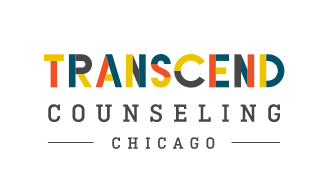The Importance of Reflecting on Your Mental Health Journey
As we start a new year, the tradition of writing resolutions serves as a powerful and symbolic act, marking both introspection and anticipation. This year, as you engage this practice, consider reflecting on how far you have come throughout your own healing journey.
What is self reflection?
Self-reflection is the process of introspection and examination of one’s own thoughts, emotions, behaviors, and experiences. It involves pausing from daily routines and taking a moment to focus inward and create an opportunity for self-awareness. It serves as a powerful mental health tool that can help contribute to personal growth and overall mental well-being. By taking the time to delve into one’s thoughts, emotions, and experiences, individuals can gain valuable insights and develop a deeper understanding of themselves. Certain versions of self reflection can enhance overall emotional and mental well-being. Specifically, reflecting on aspects of one's job can help positively reframe work situations and recover from work stress. Studies have shown that employees who engage in end-of-workday reflection exercises that focus on the positive things that happened to them report fewer mental health complaints and better mood the next day. They also experience a greater sense of work meaningfulness and self confidence (Bono et al. 2013).
How to start?
Engaging in self-reflective activities can take various forms, including journaling, meditation, deep thinking, or seeking feedback from the people around you. Regardless of the method, the key is to approach it with openness and a genuine desire for self-discovery and improvement. Creating an intention when delving deeper into self reflection can be helpful in not getting too sidetracked by negative thoughts or uncomfortable emotions that could potentially come up. For example: if the self reflective exercise is journaling, creating the intention of focusing on the progress of the experienced anxiety for the last couple of months. What helped decrease feelings of anxiety? What made it worse? Is there a common theme or pattern in the way anxiety shows up? How did I show up for myself when it did get worse? Use self-reflection as a tool for change and as a way to celebrate the small wins. The goal is never to judge or scrutinize your past choices, but to reflect on them, learn from them, and to help make the appropriate changes for your overall mental well-being. Remember to be kind with yourself, self compassion is absolutely essential when reflecting on your mental health journey. It provides the emotional support and understanding needed to navigate the complexities of personal growth and well being.
Journal prompts can be great tools for cultivating self-reflection. Here are some prompts that may help you in your self-reflection journey:
What were the most important moments or milestones in my mental health journey this past year?
How did I overcome difficulties, and what insights did these issues bring?
What were the patterns or triggers that affected my mental well-being this year? And how can I manage these triggers moving forward?
How did I prioritize self care this year? And can I continue to implement these practices throughout the upcoming year?
References:
https://hbr.org/2022/03/dont-underestimate-the-power-of-self-reflection
https://quenza.com/blog/knowledge-base/mental-health-tool-for-self-reflection/
https://www.annualreviews.org/doi/pdf/10.1146/annurev-orgpsych-031921-024406
